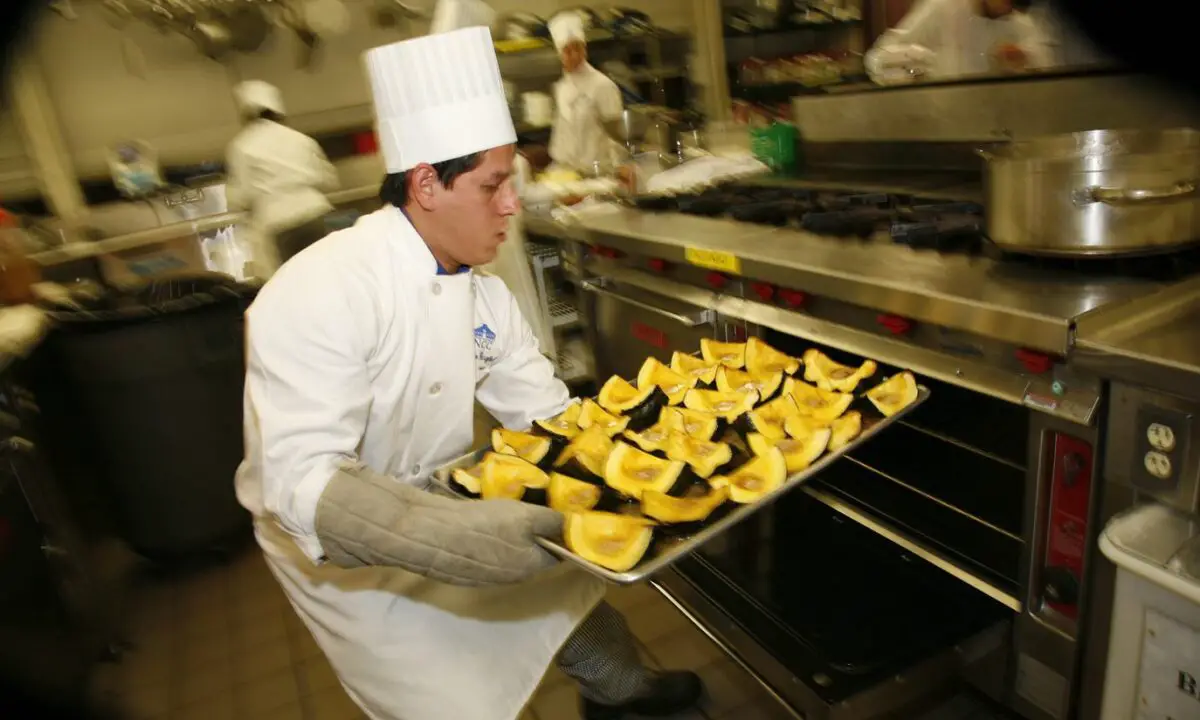Kelly Clarke, the new coordinator for Culinary and Hospitality Programs at Norwalk Community College (NCC), is excited. She has taken on the role in the midst of major changes to the way the state’s community colleges and universities work, and she is currently in the middle of preparing the kitchens where students will receive much of their training for a new semester.
Clarke can draw on years of experience running culinary arts programs for secondary education programs, including her leadership of the program at Kennebec Valley Community College in Maine, but the sheer breadth and depth of culinary possibility offered by the region may be what excites her the most.

“I’m thrilled to rewrite some curriculum for this international class,” Clarke said while explaining plans to earn American Culinary Federation (ACF) Certification for the program. “I’m asking myself well, ‘Can we get what we need from an Asian market? We’re going to need snails for escargot when we do France , where can I get those?’ Oh, wait a minute, New York is 13 miles from here.”
“I have so much access to seafood too,” Clarke added. “It’s real seafood and it’s so good. The places that we get our seafood from have been fabulous, they’ve been like, ‘Bring your students down, we’ll show them the boats, we’ll show them how to break down the fish.’ The community is lining up to help our students, and I think that’s fabulous.”
ACF certification will mean that all program graduates have demonstrated what the Federation considers basic mastery of food service quality and safety.
Clarke said the training that students pursuing culinary arts and hospitality certificates receive is intensive and provides a realistic approximation of what students can expect to find once they graduate. To help drive home those lessons, she hopes to improve the offerings of co-op opportunities where students will be able to intern with area employers.
“Because we’re training them to go out there, they need to work in the same sort of environment in here,” she continued. “So, if we’re expecting them to clean out there, they need to learn to clean in here, wear proper uniforms and do all of those kinds of things.”
According to Clarke, students in the program who take part in “laboratory” classes receive training on how to operate most kitchen equipment and perform the basic tasks to be expected of anybody working in numerous roles throughout a commercial kitchen. They also gain opportunities to experience “front of house” roles such as a host or wait staff.
In addition to kitchen areas, NCC features a wood-paneled dining area, which Clarke says is in much demand as a meeting room but is also a critical component of culinary classes.
“They get that full environment. People come in, get seated, and get a menu. The students take those orders, serve them coffee, dessert, whatever the case may be,” Clarke said. “They take turns doing dishes, they take turns being exposed to things like the pizza or the ovens or the sauté station or the salad station.”
The students in the program will also learn how to approach the complex problems that occur in real world kitchens.
“One of the first things we teach them is rice pilaf,” Clarke said by way of example. “They don’t necessarily have to remember that it’s eight grams of salt or nine teaspoons of butter. But they have to remember that rice is a two to one ratio for water because when they go out there that’s one of the first things [employers] are going to say. ‘You want this job? Show me how to do that.’ Even if that’s all they remember they’re halfway there. The rest of it comes with practice.”
Budgeting for commercial kitchens shopping, and management basics are aspects necessary to build a successful business beyond being able to cook are also taught in the program. With the merger of NCC and the rest of the Connecticut State Community College system, students will also be able to take courses offered at other institutions in the network.
Clarke encouraged members of the business community to reach out to NCC for opportunities to collaborate with the Culinary and Hospitality Program and, perhaps more importantly, to connect with a pool of emerging talent.




















